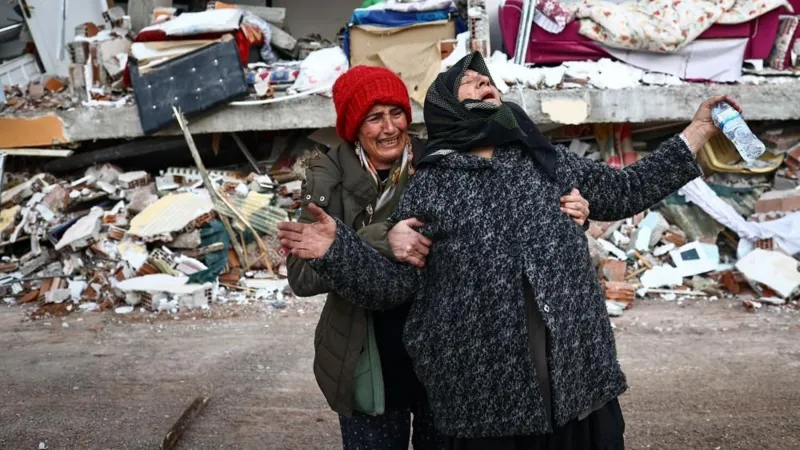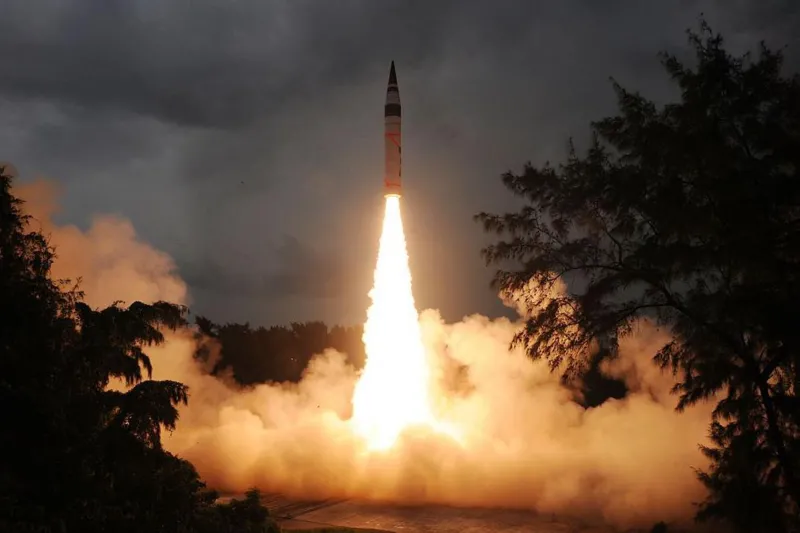More than 90 wildfires are out of control in Canada
Dozens of enormous wildfires have erupted across Canada, already forcing 21,000 evacuations and spewing toxic smoke into the air.

The provinces of Manitoba and Saskatchewan have both declared a state of emergency, as several separate blazes raged out of control.
Canada's Prime Minister Mark Carney is sending in the military to help move residents and fight fires in Manitoba, where 17,000 people have been forced to evacuate.
Manitoba Premier Wab Kinew called it the province's largest such exodus in living memory.
In Saskatchewan, where 4,000 people have fled their homes, the conditions are "as severe" as "anything that we have faced for quite some period of time, if not ever", premier Scott Moe said.
With no rain in the forecast, and a hot and dry summer on the horizon, the blazes are expected to balloon.
Mr Moe added: "I think there's an admission here that things are going to get worse before they get better."
Much of the country is currently exceptionally dry and warm.
On Friday, 175 active fires were burning, of which 95 were out of control, according to the Canadian Interagency Forest Fire Centre.
In recent years, Canadian fires have billowed dirty smoke across North America, famously spreading ominous, orange-tinted skies and filthy air across New York in 2023.
Air quality in Arrowhead, Minnesota, is deemed unhealthy for people and animals sensitive to pollution and other airborne particles, according to the Environmental Protection Agency's AirNow page.
Daniel Swain, climate scientist and meteorologist at University of California, Los Angeles (UCLA), said smoke from Canada was already visible in the western US state of Colorado today, carried by favourable winds.
The intense fires early in the year will likely "have knock-on effects in the US later this fire season", he warned.
The countries share firefighting resources and will likely have to battle strong wildfire seasons at the same time later this year, creating competition for supplies.
This challenge will be "compounded by recent severe cuts to emergency response, wildland firefighting, and weather prediction" by the Trump administration, added Dr Swain.
In response, White House spokeswoman Abigail Jackson described Mr Swain as a "longtime Democrat donor who has spent hundreds of dollars supporting liberal politicians, including loser Kamala Harris, with radical climate policies that the American people have repeatedly rejected".
"President Trump is remaking our disaster response to keep all Americans safe by ending the ineffective ways of the past and working with state and local governments to invest in their own resilience before disaster strikes."
Figures from the Federal Election Commission show Dr Swain's contributions since 2018 add up to less than $1,000.
What causes Canada's wildfires?
Canada is no stranger to wildfires, which can be sparked by human or natural causes like lightning, and are also influenced by the way the land is managed.
But climate change is creating more fuel for them, as hotter air dries out the land.
Fire-friendly weather that created exceptional blazes in eastern Canada in 2023 was made at least seven times more likely by climate change, scientists at World Weather Attribution found.
Justin Murgai, CEO of WaterAid Canada, told Sky News: "The growing scale and severity of wildfires in Canada are a stark reminder of our changing climate."
He said the fires "threaten air quality, displace families, and stretch essential services to breaking point, often contaminating water sources and cutting off communities from safe water".
-SKY NEWS






